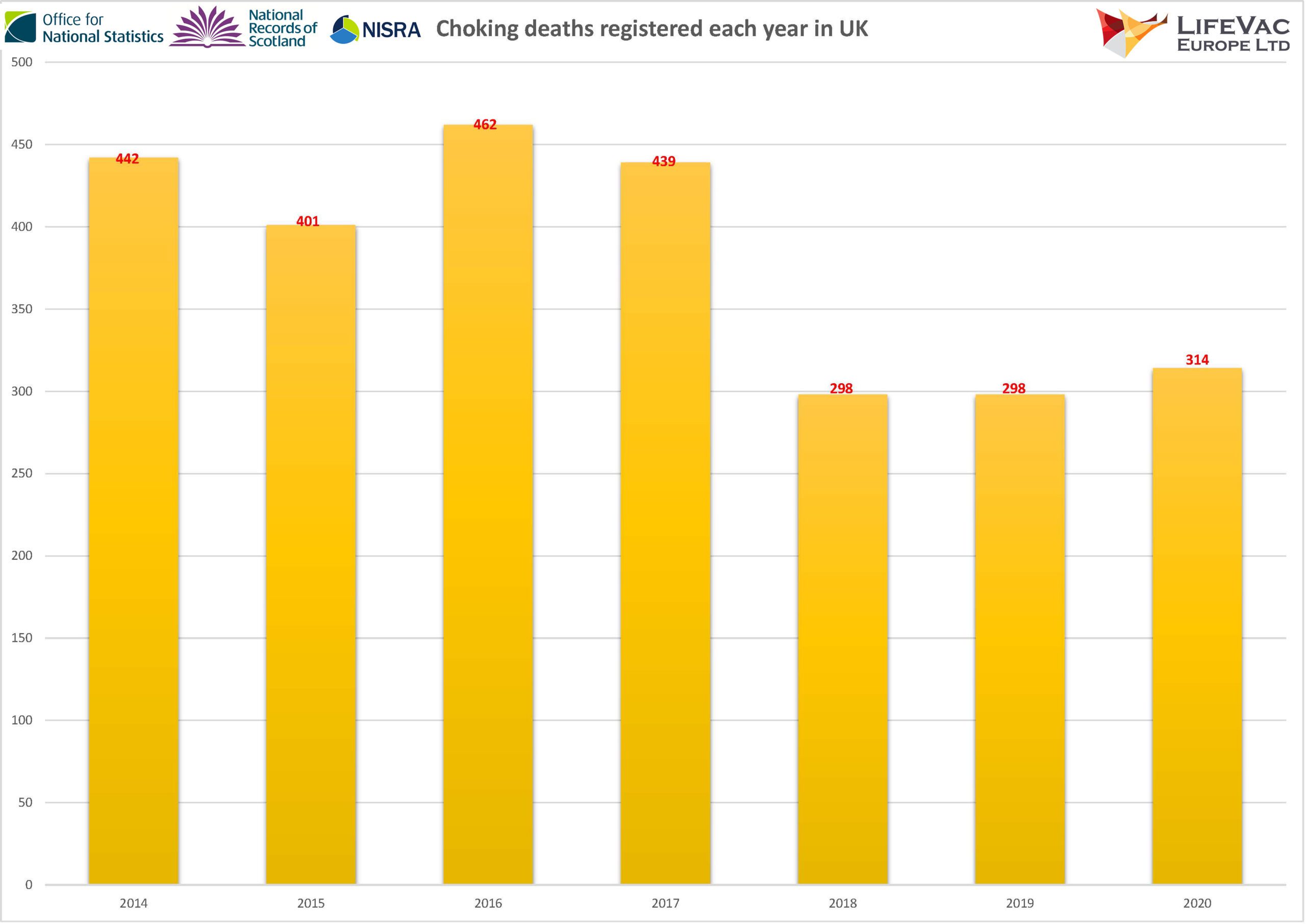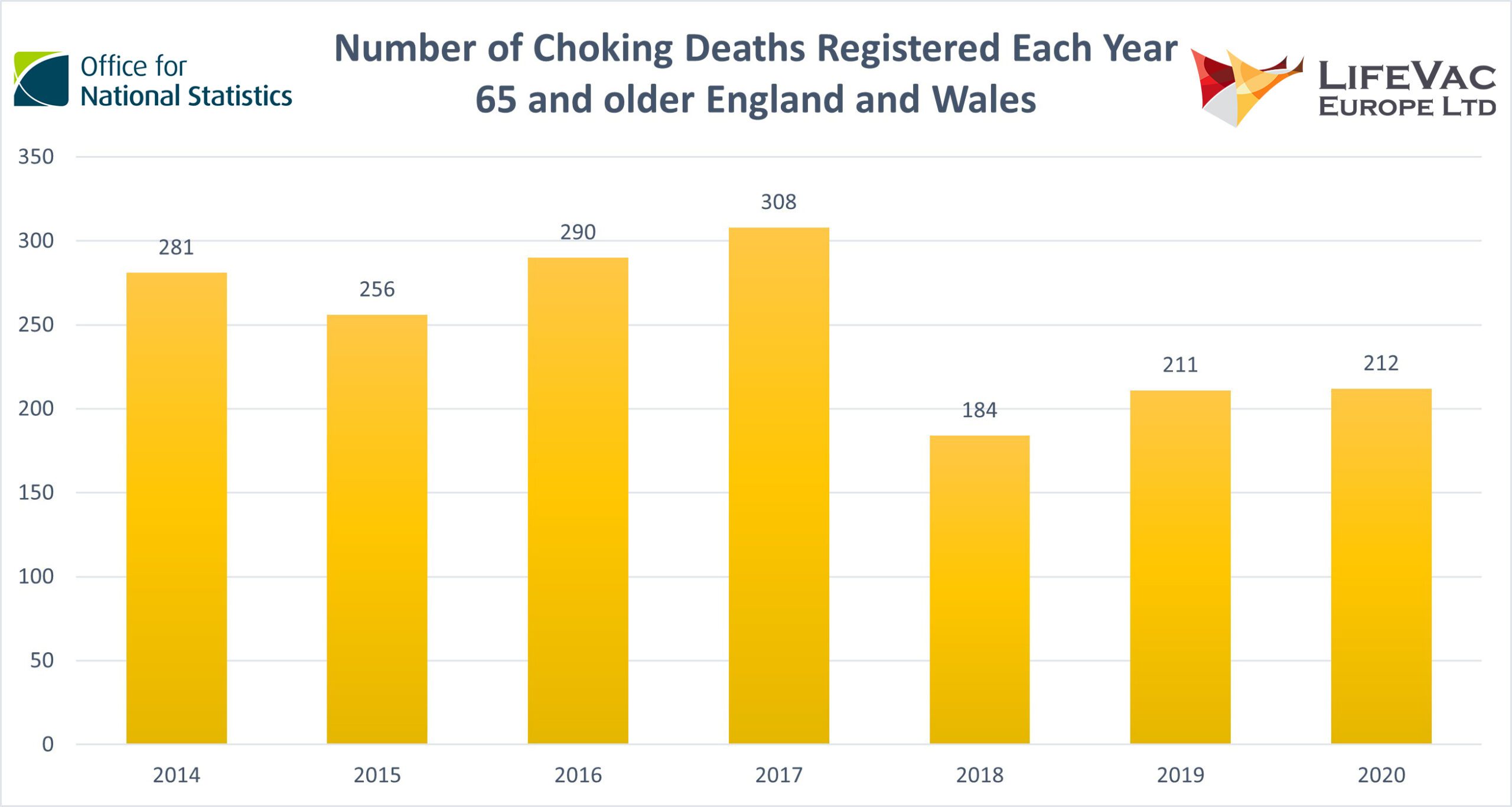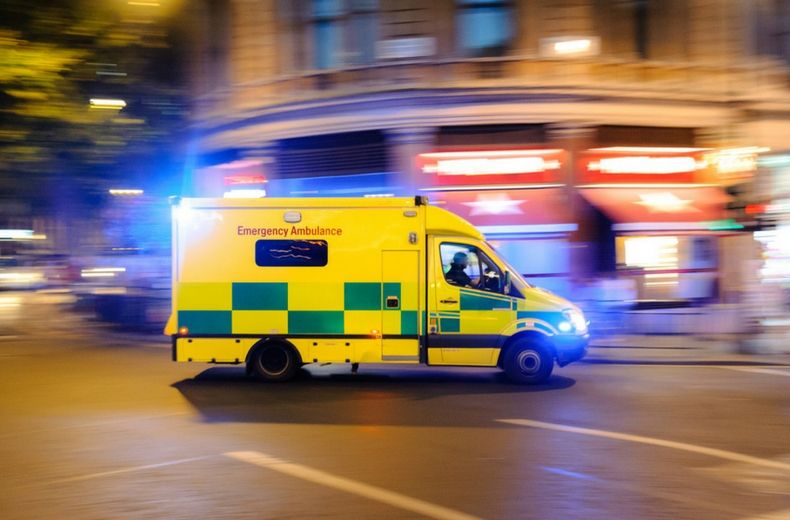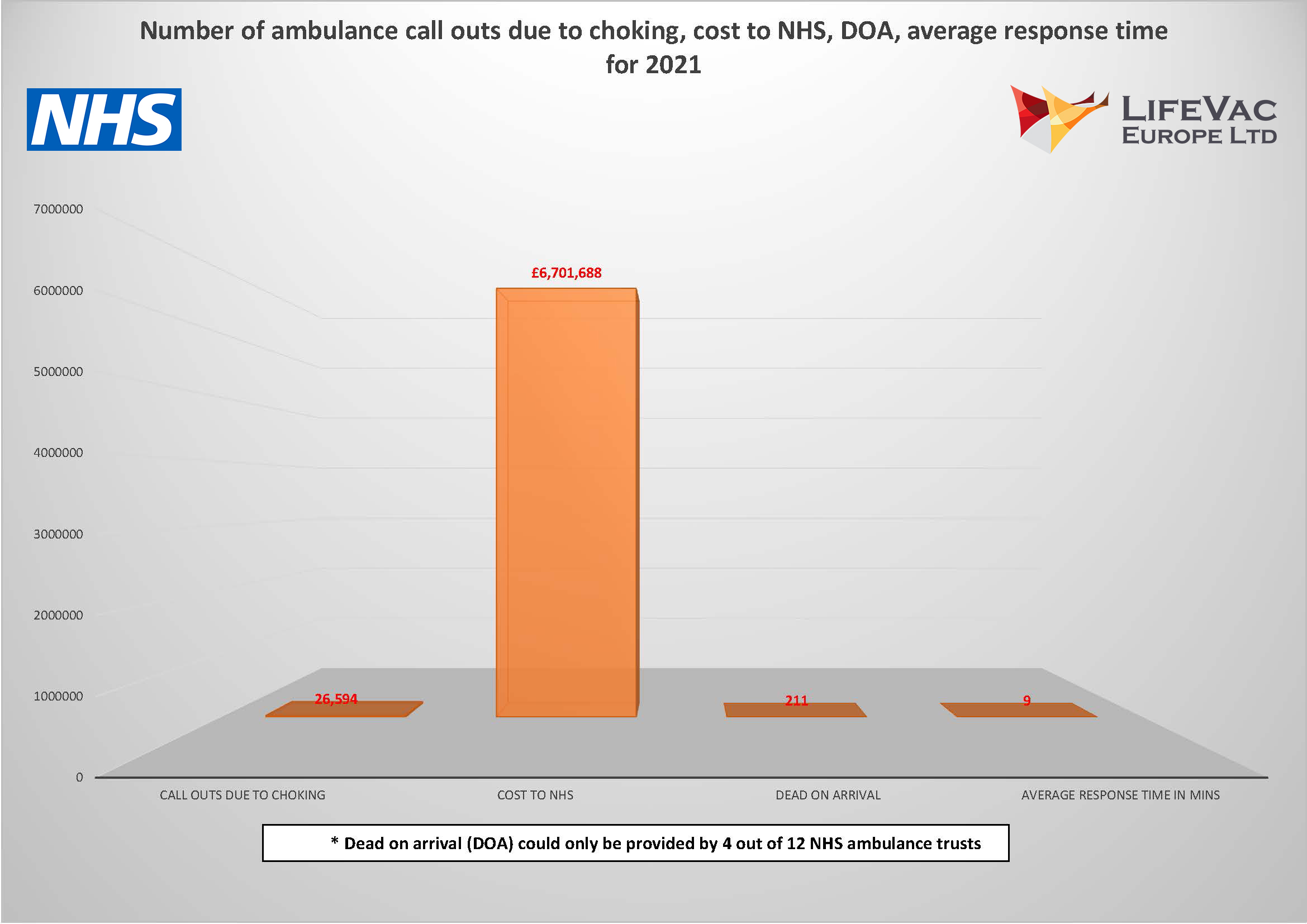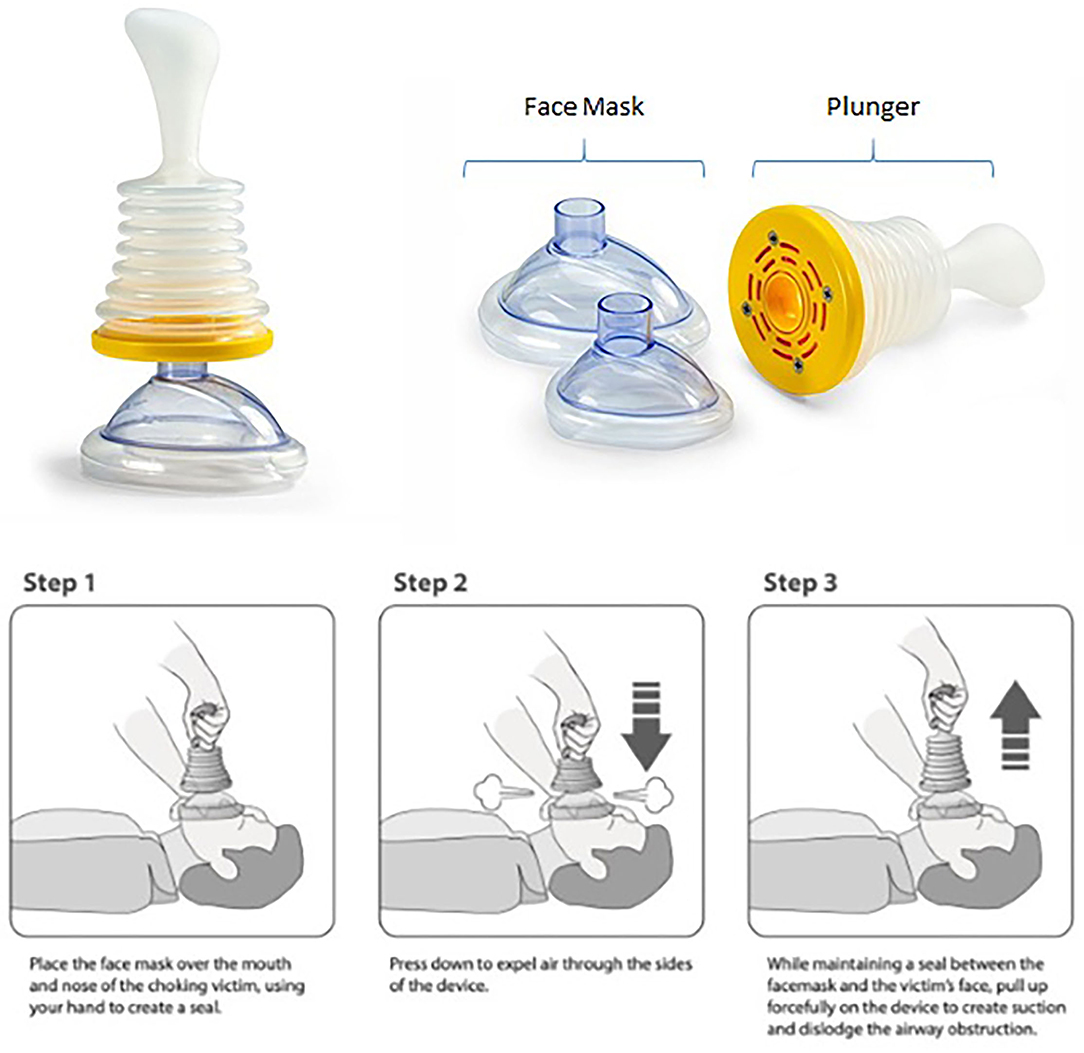Is Choking as Uncommon in the UK as Some May Think?
The short answer is simple, no it isn’t uncommon at all. But trying to find the true statistics for the UK is extremely hard comparing to many other countries around the world.
The Office of National Statistics, NISRA, and NRS even state “Please note, deaths involving choking may not always be recorded as an underlying cause of death, choking may be recorded on the death certificate as a contributing factor. I.e., An individual suffering with dementia may have had the inability to swallow and therefore choked. The underlying cause would be dementia and the secondary cause would be choking.”
This basically means if the person who passed away had an underlying medical condition, then that would be recorded as the primary cause of death, not choking. This is why trying to find the actual statistics of “number of deaths caused by choking/FBAO” is extremely difficult in the UK and they are much greater than the figures recorded by the ONS, NRS and NISRA.
LifeVac Europe carried out Freedom of Information Requests to the Office of National Statistics (ONS), NISRA, NRS and all NHS Ambulance Trusts in the UK to try and find data on choking.
The above chart represents the data that the ONS, NISRA and NRS hold on choking deaths in the UK, where choking had been recorded as the primary cause of death (where the person did not have an underlying medical condition).
As you can see, the number of deaths where choking was recorded as the primary cause have decreased since 2014, but in 2020 had risen by 6% in comparison to 2019.
Elderly MOST at risk of choking to death
In 2020 the ONS recorded 212 choking deaths in adults over the age of 65, as we know from working with thousands of care and nursing home providers, roughly 50% of people aged 65-74 and nearly two-thirds of those over 85 live with an underlying medical condition. In fact choking is one of the leading causes of accidental death in adults over the age of 65. This means if 50% of people aged 65-74 and nearly two-thirds of those over 85 passed away from an FBAO (Foreign Body Airway Obstruction) they would not be included in the above figures as choking would not be recorded as the primary cause of death. This is why true figures are hard to find in the UK.
NHS Ambulance Trust Data
Out of 12 NHS Ambulance Trusts, we received 12 responses to our FOI requests, where we asked for data covering the number of call outs received due to choking, cost of an ambulance to attend a scene, average response time to a choking category call out and how many people were dead on arrival (DOA) for 2021. Only 4 NHS ambulance trusts held DOA figures, 8 NHS Ambulance trusts advised they do not know the DOA figure and we would have to contact each hospital to inquire. All NHS Ambulance Trusts advised they did not know how many people passed away due to choking once they arrived at hospital.
12 NHS Ambulance trusts attended 26,594 call outs due to choking/FBAO in 2021 at a cost of £6,701,688.
4 out of 12 NHS Ambulance trusts reported that 211 casualties were DOA due to choking/FBAO in total. If we use 211 DOA, then the total DOA due to choking for all 12 NHS Ambulance Trusts for 2021 would be 633. If we compare the 633 deaths due to choking to the figures provided by the ONS, we can see how drastically wrong the ONS figures actually are. This figure does not include how many people sadly passed away due choking once they arrived in hospital.
If we look at the 9 minute average response time for a choking call out and compare that to the time you have to try and save someones life in a choking emergency. You can see, a lay person is helpless if they cannot dislodge the obstruction in the casualties airway while waiting for an ambulance to arrive on scene:
Choking can kill in less than 10 minutes, time is of the essence when somebody begins to choke
4 – 6 minutes of oxygen starvation, brain damage is possible.
6 – 10 minutes of oxygen starvation, brain damage is probable.
10+ minutes of oxygen starvation, the victim is likely to die.
At LifeVac Europe, we are not sure if it’s a coincidence that choking deaths recorded by the ONS have decreased over the past 3 years as we have now saved over 321 lives in a choking emergency and work with thousands of care and nursing home providers across the UK. But we do know that our LifeVac ACD saves lives when all else fails or cannot be performed and provides an additional option to lay people when time is of the essence.

